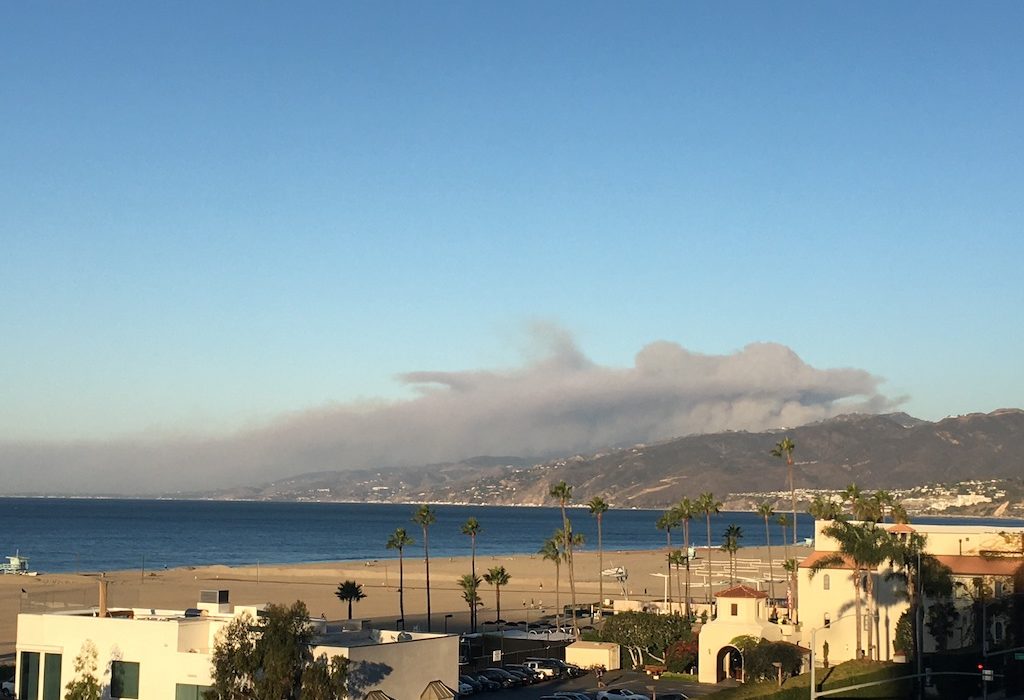The Three California Wildfires
Would you be prepared?
The fires are heartbreaking and close to home. They’ve become the most destructive and deadliest in California history has raged for almost a week. And firefighters and residents are battling three wildfires – the Camp Fire about 90 miles north of Sacramento and the Woolsey Fire and the Hill Fire, both west of Los Angeles and close to homes of our family and friends.
The wind-swept and massive infernos have devastated the California town of Paradise and the toll from the three wildfires so far is staggering – at least 44 residents have died, more than 200 are missing, over 7,000 structures – including 6,453 homes – are destroyed, and more than 117,000 acres are burned. And the fires are still not contained as residents fear that the Santa Ana winds will soon reach hurricane strength.
How would you react if the news came that a fire was heading in your direction? Would you scramble to protect your home and family, uncertain of where to begin?
Or, would you calmly pull out a detailed plan for such emergencies? Would your family be ready to evacuate quickly with essential supplies? Would your house be secure?
Planning for a disaster is no different from other measures you probably take to protect yourself and your family from potential hardship, such as insuring your life, saving for retirement, and getting regular medical check-ups. But preparing for a disaster does take a small investment of time and money. Even a very basic plan could one day save you and your loved ones from ruin.
Here are some steps you can take to prepare your family to manage in an emergency:
Plan to evacuate
Think carefully about what you and your family would do if you were advised to evacuate your home.
- Plan in advance where you would go, and how you would get there. Establish a meeting place for family members in case you become separated.
- Keep your gas tank at least half full at all times.
- Prepare a kit of emergency supplies to last you three days, including food and water, a first aid kit, clothing and blankets, and prescription drugs.
- You should also have an envelope on hand with enough cash or travelers checks to last your family about three days, as well as several credit cards with high available balances.
Store important documents in an “evacuation box”
Collect and make copies of all your key financial and personal documents, and make a written and photographic inventory of all your valuables. Essential documents should be stored in a bank safe-deposit box located some distance from your home or in an airtight, waterproof, and fireproof safe or container that can easily be taken with you in an emergency evacuation.
Protect your property
If you live in an area that is frequently hit by natural disasters, consider what you can do to mitigate potential damage to your property. Depending upon the type of disaster likely to strike, you may want to take steps like adding fire-resistant siding, installing smoke detectors, clearing brush from around the house, anchoring the foundation and roof, installing fire-resistant shutters on windows and glass doors, securing objects that could fall, and moving electrical panels and furnaces to upper levels.
In addition, develop an action plan for evacuation. Before leaving your house, secure outdoor furniture, unplug electrical equipment, shut down gas and water utilities, and lock windows and doors.
Get the family involved
Assign evacuation-related tasks to each family member, and conduct a drill to ensure that everyone in your household knows exactly what to do in an emergency situation.
Purchase necessary insurance coverage and review your policies regularly
Many people who have lost their homes to fires find their insurance policies do not cover the cost of rebuilding. Review your homeowners-insurance policy annually to make sure it reflects the actual replacement cost of your home and its contents. Be aware that your policy may not cover damage due to specific causes.
Your particular circumstances will ultimately determine what measures are necessary to prepare your family for weathering an emergency. Whatever action you decide to take, remember that most disasters strike with little or no warning – the time to get ready is now.






